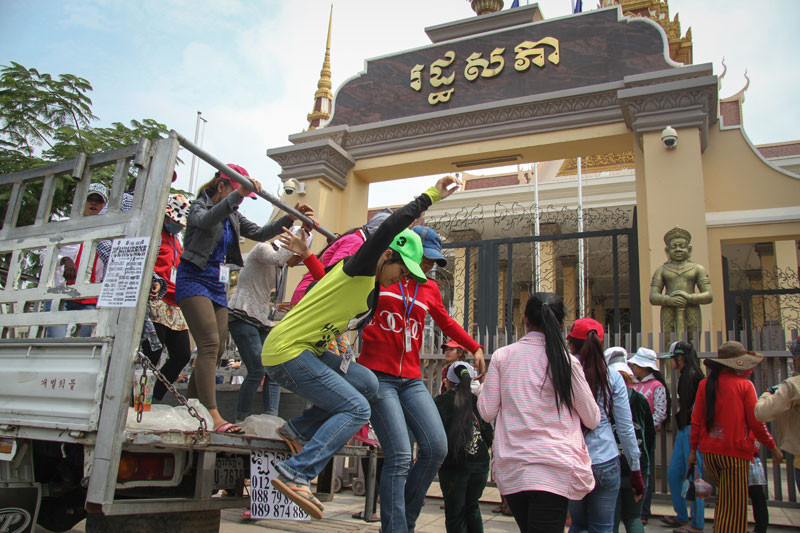Garment factory owners will begin negotiations with unions about the industry’s minimum wage this week by proposing a $4.20 increase to the current $140 per month, about $35 less than the starting position of unions, who have proposed a $39.60 hike.
With a new minimum wage set to take effect in January, employers and unions will sit down with the Labor Ministry to open talks on Friday.

In a letter sent on Tuesday to Labor Minister Ith Sam Heng, who will ultimately decide on the new wage, the Garment Manufacturers Association in Cambodia (GMAC) said the industry could afford no more than $144.20 next year.
“Our sector is in an increasingly difficult situation, so changing the minimum wage for 2017 must be done correctly and carefully to guarantee the continued competitiveness and stability of our sector,” the letter said.
The association listed falling prices paid by brands, lower worker productivity and increasing factory closures as reasons why a more significant raise was untenable.
The floor wage has more than doubled over the past three years, yet unions say the wage is still not on par with living costs due to years of stagnation.
Mass strikes broke out in 2013 in response to the government’s decision to set the minimum wage at $100 and were quelled only when military police shot dead at least five workers during a violent protest. The outcomes of negotiations in 2014 and last year, which saw wages rise to $128 and then $140, were met with little resistance by workers.
With some unions already threatening strikes if their latest demand for $179.60 was not met, GMAC Secretary-General Ken Loo said the two sides were coming to the table closer to the same figure than in previous years.
“There’s improvement,” he said, noting that the two sides started $49 apart last year. “I don’t want to sing the same tune over and over again, but no country in the world can sustain a 30 percent increase every year.”
“Already at $140 we are not competitive,” Mr. Loo said, adding that Bangladesh and Vietnam continued to be more attractive investment destinations in many ways. “Any further increase would only make us more uncompetitive.”
In the lead-up to the talks, schisms have formed among unions, with the Free Trade Union (FTU) claiming that it was added to the list of groups demanding $179.60 despite not agreeing to the figure.
Mann Seng Hak, who represented the FTU in discussions with other unions last week, said his union had sent the Labor Ministry a separate request demanding a $183 wage.
“I don’t want other unions taking my union’s name and using it without my agreement because I want $183,” he said.
Pav Sina, head of the Collective Movement of Union of Workers, which is among those backing $179.60, said Mr. Seng Hak was being insincere.
“He agreed during our meeting together, but I think he wants to become more popular than the other unions,” he said.
(Additional reporting by Colin Meyn)